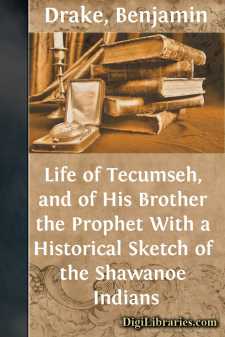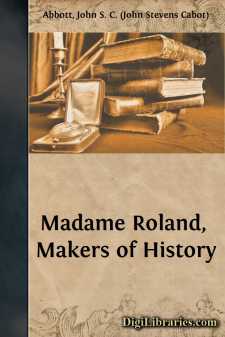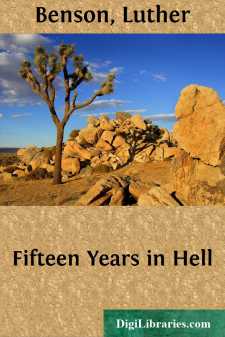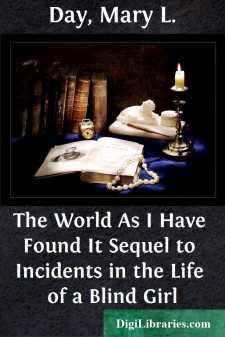Biography & Autobiography
- Adventurers & Explorers 15
- Artists, Architects, Photographers 16
- Business 2
- Composers & Musicians 14
- Criminals & Outlaws 5
- Editors, Journalists, Publishers 6
- Educators 1
- Entertainment & Performing Arts 3
- General
- Health, Exercise & Fitness 1
- Historians 3
- Historical 83
- Law Enforcement 1
- Lawyers & Judges 3
- Literary 147
- Medical 7
- Military 48
- Naturalists, Gardeners, Environmentalists 8
- Personal Memoirs & Diaries 227
- Philosophers 3
- Political 9
- Presidents & Heads of State 38
- Religious 38
- Rich & Famous 27
- Scientists 13
- Women 31
General Books
Sort by:
THOMAS HOBBES. This distinguished Freethinker was born on the 5th of April, 1588, at Malmesbury; hence his cognomen of "the philosopher of Malmesbury." In connection with his birth, we are told that his mother, being a loyal Protestant, was so terrified at the rumored approach of the Spanish Armada, that the birth of her son was hastened in consequence. The subsequent timidity of Hobbes is...
more...
by:
Benjamin Drake
HISTORYOF THESHAWANOE INDIANS. There is a tradition among the Shawanoes, in regard to their origin, which is said to be peculiar to that tribe. While most of the aborigines of this country believe that their respective races came out of holes in the earth at different places on this continent, the Shawanoes alone claim, that their ancestors once inhabited a foreign land; but having determined to leave...
more...
Childhood. 1754-1767Characters developed by the French Revolution.Madame Roland.Many characters of unusual grandeur were developed by the French Revolution. Among them all, there are few more illustrious, or more worthy of notice, than that of Madame Roland. The eventful story of her life contains much to inspire the mind with admiration and with enthusiasm, and to stimulate one to live worthily of...
more...
I. He was little and looked at the world from below. All that happened, went on over his head. Everyone looked down to him. But the big people possessed the enviable power of lifting him to their own height or above it. It might so happen that suddenly, without preamble, as he lay on the floor, rummaging and playing about and thinking of nothing at all, his father or a visitor would exclaim: "Would...
more...
I.--Right and Law All human eloquence, among all peoples and in all times, may be summed up as the quarrel of Right against Law. But this quarrel tends ever to decrease, and therein lies the whole of progress. On the day when it has disappeared, civilisation will have attained its highest point; that which ought to be will have become one with that which is; there will be an end of catastrophes, and...
more...
CHAPTER I THE FIRST BENTINCK A HERO What a delightful story is that of the Portland peerage, in which fidelity, heroism, chivalry and romance are blended and interwoven in the annals of the noble families of England. Who that has been to Welbeck Abbey, that magnificent palace in the heart of Sherwood Forest, with its legends of Robin Hood and his merrie men, with its stately oaks and undulating...
more...
by:
Luther Benson
CHAPTER I. Early shadows--An unmerciful enemy--The miseries of the curse--Sorrow and gloom--What alcohol robs man of--What it does--What it does not do-- Surrounding evils--Blighted homes--A Titan devil--The utterness of the destroyer--A truthful narrative--"It stingeth like an adder." Truth, said Lord Byron, is stranger than fiction. He was right, for so it is. Another has declared that if any...
more...
by:
Mary L. Day
INTRODUCTION. Mrs. Arms has asked me to write an introduction to her book. It hardly seems to need it. The title-page shows that it was written by one who is blind. It is a sequel to another volume. That volume has been widely sold, and all who read it will, I am sure, have some desire to see how the stream of the life of its writer has been flowing since her first book was written. Her patient...
more...
by:
DadaBhagwan
Na arena da espiritualidade, há pessoas espirituais únicas e notáveis que alcançaram os mais altos níveis de desenvolvimento espiritual. Alguns permanecem em reclusão, enquanto outros se tornam professores espirituais que apoiam a transformação espiritual da humanidade. Mas é extremamente raro encontrar um Gnani Purush (incorporação do conhecimento do Ser) e acessar seu poder espiritual para...
more...
by:
Samuel Smiles
CHAPTER I. IRON AND CIVILIZATION. "Iron is not only the soul of every other manufacture, but the main spring perhaps of civilized society."—FRANCIS HORNER. "Were the use of iron lost among us, we should in a few ages be unavoidably reduced to the wants and ignorance of the ancient savage Americans; so that he who first made known the use of that contemptible mineral may be truly styled...
more...











